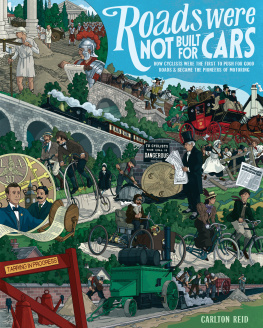Reid - The Improbable Rise of Redneck Rock
Here you can read online Reid - The Improbable Rise of Redneck Rock full text of the book (entire story) in english for free. Download pdf and epub, get meaning, cover and reviews about this ebook. City: Austin;Texas, year: 2004, publisher: University of Texas Press, genre: Detective and thriller. Description of the work, (preface) as well as reviews are available. Best literature library LitArk.com created for fans of good reading and offers a wide selection of genres:
Romance novel
Science fiction
Adventure
Detective
Science
History
Home and family
Prose
Art
Politics
Computer
Non-fiction
Religion
Business
Children
Humor
Choose a favorite category and find really read worthwhile books. Enjoy immersion in the world of imagination, feel the emotions of the characters or learn something new for yourself, make an fascinating discovery.
- Book:The Improbable Rise of Redneck Rock
- Author:
- Publisher:University of Texas Press
- Genre:
- Year:2004
- City:Austin;Texas
- Rating:4 / 5
- Favourites:Add to favourites
- Your mark:
- 80
- 1
- 2
- 3
- 4
- 5
The Improbable Rise of Redneck Rock: summary, description and annotation
We offer to read an annotation, description, summary or preface (depends on what the author of the book "The Improbable Rise of Redneck Rock" wrote himself). If you haven't found the necessary information about the book — write in the comments, we will try to find it.
Jan Reid revitalizes his classic look at the Austin music scene.
Reid: author's other books
Who wrote The Improbable Rise of Redneck Rock? Find out the surname, the name of the author of the book and a list of all author's works by series.
The Improbable Rise of Redneck Rock — read online for free the complete book (whole text) full work
Below is the text of the book, divided by pages. System saving the place of the last page read, allows you to conveniently read the book "The Improbable Rise of Redneck Rock" online for free, without having to search again every time where you left off. Put a bookmark, and you can go to the page where you finished reading at any time.
Font size:
Interval:
Bookmark:
THE IMPROBABLE RISE OF
REDNECK ROCK
NUMBER TWELVE
Jack and Doris Smothers Series in Texas History, Life, and Culture

THE IMPROBABLE RISE OF
REDNECK ROCK
NEW EDITION
byJAN REID
photographs by
SCOTT NEWTON

UNIVERSITY OF TEXAS PRESS
AUSTIN
COPYRIGHT 2004 BY THE UNIVERSITY OF TEXAS PRESS
All rights reserved
Printed in the United States of America
First edition, 2004
Requests for permission to reproduce material from this work should be sent to Permissions, University of Texas Press, P.O. Box 7819, Austin, TX 78713-7819.
LIBRARY OF CONGRESS CATALOGING-IN-PUBLICATION DATA
Reid, Jan.
The improbable rise of redneck rock : new edition / by Jan Reid ; photographs by Scott Newton. 1st ed.
p. cm. (Jack and Doris Smothers series in Texas history, life, and culture ; no. 12)
An extensively revised and updated edition of Jan Reids now-classic look at the Austin music sceneECIP data. Includes index.
ISBN 0-292-70197-7 (cl. : alk. paper)
1. Rock musicTexasAustinHistory and criticism. I. Title. II. Series.
ML3534.R386 2004
781.64'09764'31dc22 2003021707
ISBN 978-0-292-75722-6 (e-book)
ISBN 978-0-292-78776-6 (individual e-book)
for
DAVID
and
JOYCE
and
MELINDA
ALSO BY JAN REID
Deerinwater (a novel)
Vain Glory
Close Calls
The Bullet Meant for Me
Boy Genius (co-authored)
This night life aint no good life, but its my lifeWILLIE NELSON
PROLOGUE
IF THIS BOOK HAD ANY BEGINNING, it was probably in a little building with brown asbestos siding at the corner of 23rd and Grace Streets in Wichita Falls, a small city on the Texas side of the Red River, whose hymn was enduringly sung by novelist Larry McMurtry:
I once had a character say it was the ugliest place on earth, but since that time extensive readings in the literature of Patagonia, Siberia and Central Asia have convinced me that while dramatically apt, the statement should not be pressed as literally true. Ulan-Bator, Omsk, Semipalatinsk, Tashkent and some of the villages in the district of the Lob Nor, these are all at least as ugly, and doubtless the list will grow even longer as I read on.
McMurtry was a native son, practically. He grew up on a nearby cattle ranch, which possibly accounted for some of his antipathy toward the old hometown. Of course, some people wouldnt live anywhere else. It was a quiet, clean town, they argued, a good place to raise a family. It was known as the City That Faith Built. Maybe so, the counter argument ran, but faith picked a hell of a place to set up shop.
The little structure at 23rd and Grace was an unpretentious manifestation of that faith. It housed blond, uncushioned pews which rarely seated more than 300 people, a modest pulpit, a stark baptistry, a two-story classroom addition. Over the years it had its problemsa fire that traveled through the heating ducts and left the place stinking for months, ministers forever on the lookout for greener pastures, the disfellowship of a popular deacon gone wrong. And it served an aging neighborhood, which meant there was never much money in the church coffers, and when the old died off, they were replaced by more and more Chicanos who were probably Catholic, and in any case not welcome as prospective members. But the congregation at 23rd and Grace persisted; it socialized together, planned for the future together, cared for its impoverished, aged, and afflicted together. It was a workingmans neighborhood, a workingmans church. On the buildings front were letters cut from aluminum by a members metal shears: Church of Christ.
An Irish Presbyterian and immigrant named Thomas Campbell unintentionally founded the sect in Washington, Pennsylvania in 1807. However, the gospel was spread by his son Alexanderwho once debated the subject of infant baptism with a Presbyterian for sixteen days while Henry Clay moderatedand a score of transient evangelists like Raccoon John Smith, an Alabaman who one day disrupted a Methodist service by quaffing down the infant baptismal water and telling the stunned minister, Brother, I drank your Jordan dry. But those of us who grew up at 23rd and Grace knew nothing of that; all we knew was that it was the Church, the one built in the first century on the rock of the apostle Peters faith, not his person. It was the one in accordance with Scriptures, the one on guard against frills and misdirection, the one that stayed alive in attics and catacombs during the deviancy of the Middle Ages and the Protestant Reformation. Which was the reason we didnt have a piano like our Baptist brethren down the street.
The Campbells movement fractured in 1906, primarily over the means of making a joyful noise unto the Lord, as commanded in Psalms. One faction reasoned that since the Scriptures werent explicit on the precise mode of the joyful noisemaking, surely the Lord wouldnt mind if the music which reached His ears was concordant. The other said it was taking no chances. The former became the Disciples of Christ, the more affluent Christian churches of most towns in the Midwest and South. The latter became the fundamentalist Churches of Christ.
As a result the members of the church at 23rd and Grace lifted their voices without the assistance of a piano or organ or even a small trained choir. There was just a brother in the pulpit who could tell one pitch from another, who waved a hand in the air and tried to get the lumbering vocal flight off the ground. Roughly half the members tried to discipline their voices in soprano, alto, tenor, and bass ranges. The others sang to the best of their ability. If the a capella gathering at 23rd and Grace had ever gathered in the Mormon Tabernacle, they probably would have set off harmonic vibrations that would have brought the house down, but if there was any beauty in that determined sect, it was in its music.
Some of the songs in the hymnal were cumbersome and plodding, as if written by some aging, alchemistic monk, but others took off in simple soaring flights of emotion. Songs written by lyricists with evocative Southern names like Jessie Brown Pounds and Fannie J. Crosby. Songs of a loving God who nevertheless had stated a law and meant to keep His word. Sorrowful yet exultant songs about Jesus at Calvary. Imagistic songs about the Gentile Zion. Songs of sweet, sweet assurance that the next life wouldnt be as hard on faithful Christians as this one had been. And most important, songs of invitation.
Though the sermon occasionally began with a quip or anecdote, the message was dead serious. They were utopian Christians who hoped against long odds that the world would adhere to the example of the first-century church, and like most utopians, they reserved scant sympathy for those outside the enlightened inner circle. The road to the promised land was in fact so straight and narrow that it could only accommodate faithful members of the Church of Christ, and by midsermon the address often boiled over into attack upon rival sects, upon members who failed to live up to their commitment, upon those truculent members of the audience who had not taken the first step.
Those words resounded in the ears of adolescents reminded daily that we were now accountable for our actions, but the sermon alone was more likely to leave us petrified in our pews than at the front professing our faith in Jesus. But toward the end the preachers rhetoric softened, and with a final plea he relinquished the microphone to the song director, who led the congregation in a song that was soft, lilting, and sad:
Next pageFont size:
Interval:
Bookmark:
Similar books «The Improbable Rise of Redneck Rock»
Look at similar books to The Improbable Rise of Redneck Rock. We have selected literature similar in name and meaning in the hope of providing readers with more options to find new, interesting, not yet read works.
Discussion, reviews of the book The Improbable Rise of Redneck Rock and just readers' own opinions. Leave your comments, write what you think about the work, its meaning or the main characters. Specify what exactly you liked and what you didn't like, and why you think so.
















